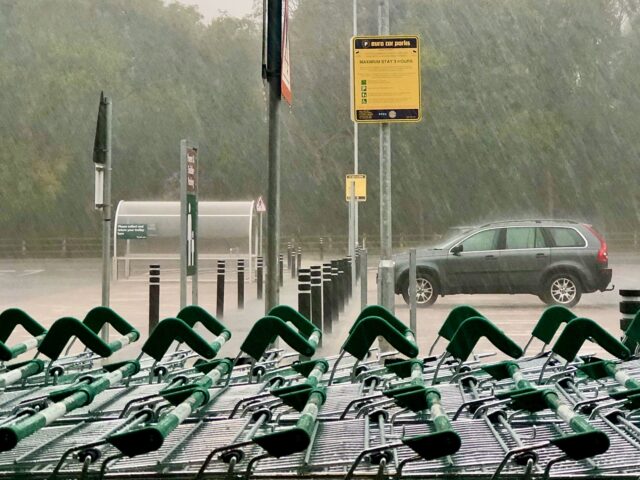The British government is set to miss out on billions in tax on gasoline and diesel after it pushed drivers to adopt electric cars instead, and will want to make up the shortfall by taxing road users per mile instead, a senior government advisor says.
Britain faces a future of “Big Brother is watching you” style cameras tracking drivers so they can be billed for using roads as the government’s policy decisions to incentivise electric vehicles (EVs) means it stands to miss out on billions of pounds of tax money from drivers a year.
In the United Kingdom, two of the major ways in which drivers are taxed is through Vehicle excise duty (‘car tax’), paid once a year and scaling on the type of car, and fuel duty paid at the pump when refuelling. But EVs don’t pay either of these taxes, and while electricity is not tax free — some tax and levies are charged on domestic electric use — the government is congenitally unable to cut its cloth according to its means and will look to other sources, says the chair of the National Infrastructure Commission Sir John Armitt.
Speaking at a conference on transport infrastructure on Thursday, Sir John said the government could either fund roads in future through general taxation, or find a way to tax electric vehicles, states The Guardian. He spoke particularly of what is called road pricing, where cars are taxed depending on how far they drive. In some cases this already exists, such as toll roads — although these are very rare in the UK now — or with London’s congestion charge.
A simple approach is to use the annual mileage of cars, as already recorded in the annual government mandated roadworthiness tests (MOTs), to see how far a car has been driven in any given 12-month to issue a bill based on that. But as expressed by Sir John, the government may wish to go for a more intrusive system. He said: “People would probably not like this in terms of ‘Big Brother is watching you,’ [but] you could pay a different rate, per time of day, per type of road you were driving on, anywhere in the country, and you just get a bill.”
On the government seeking to make up the money it lost on the push for electric, he said: “It’s politically a very difficult issue isn’t it? But many people will say road pricing is inevitable. Personally, I don’t see why it should be any different to anything else… We pay for all our other infrastructure services as we use them, and we pay for driving on the road, as we use it, via petrol tax. And if you’re going to lose the petrol tax, at [more than] £30bn a year, what is government going to replace it with?”.
The Guardian notes the government believes close to 100-per-cent of cars on British roads will be electric by 2045 assuming ban on new internal combustion engine cars in 2035 goes ahead. This is by no means certain of course, given it is easy for governments to announce such grand plans when they are so far in the future, when most of those involved will have retired by the time the tough decision comes. As it is, such decisions have been walked back several times in European nations including Britain already as the harsh reality bites, and may again in years to come.

COMMENTS
Please let us know if you're having issues with commenting.